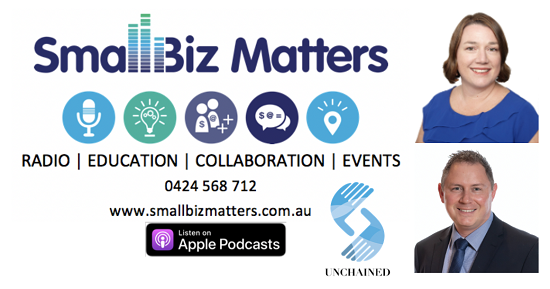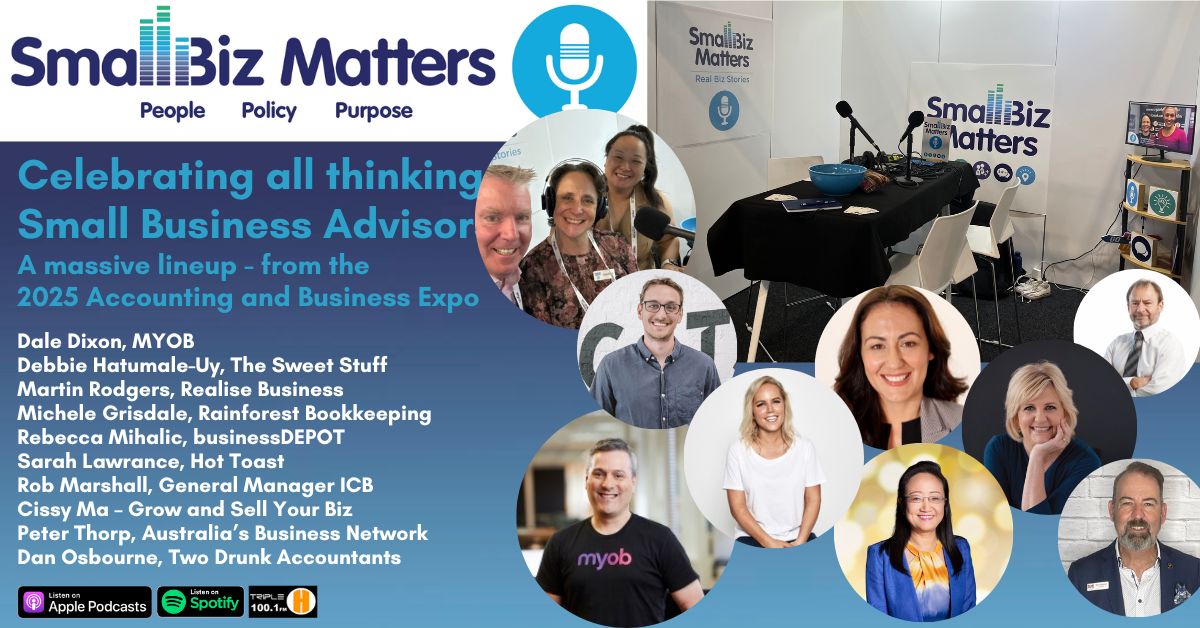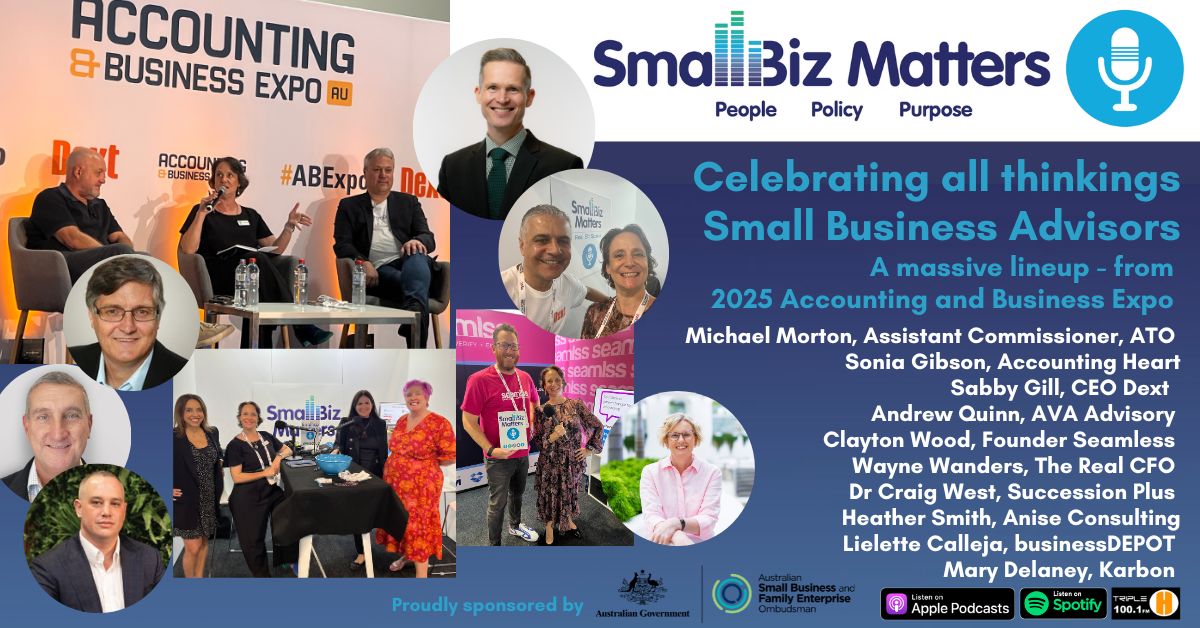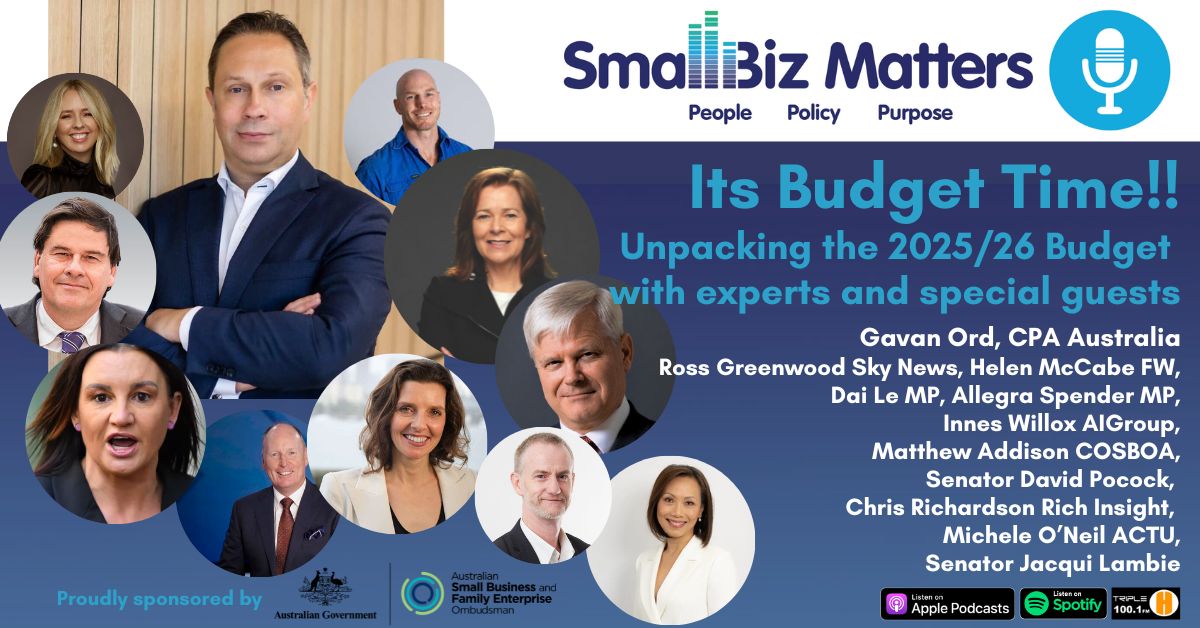When did you last investigate your exposure to modern slavery in your small business supply chain?
| Tuesday February 18Small Biz Matters – a half hour program each week where you can work ON your business rather than IN it.
with Alexi Boyd, broadcaster, advocate and small business owner.
Date: 18 February 2020
Did you know in 2018 the Modern Slavery Act came into affect for all businesses over $100M profit? It means they must report on the people and materials in their supply chains to prove they are not involved in what’s termed modern slavery. Whether it be working conditions, where your raw materials come from, or worse, it’s not something any business needs on their record.
So, it may not relevant to us now but we in small business know it won’t be long before this piece of legislation is coming for us too.
But what if I told you that you can opt in? Having this tick of approval might help you get that lucrative corporate or govt contract. Or really prove you’re as socially conscious as you claim. So understanding and mitigating the risks in your supply chain is ethically important.
So what is the 2018 Modern Slavery Act, the process for reporting and how is it now and into the future going to affect small businesses in Australia? Stephen and Sarah Morse already have decades of experience in this industry, some not so positive but are putting all of this into supporting businesses to understand the Act, be compliant and decrease their exposure to the Modern Slavery trade.
Welcome to the show Stephen & Sarah.
Topics we’ll be covering:
- What is the act and how does it affect small business in terms of compliance?
- Tendering process is where the majority of transparency needs to be shown
- Mandatories - affects $100 gross profit, dept home affairs administrators, approx 3000 entities at moment but likely to expand
- These entities (or those who wish to opt in) have to report every year.
- Guidelines include 7 steps, how have you investigated and consulted to mediate the risk, what KPIs are you putting in place. Reasonable steps are the expectation.
- The trickle down affect will mean all suppliers (inc small business) need to demonstrate compliance (opt-in) to maintain and tender.
- transparency (explore their supply chain risk and exposure
- Why is it beneficial for a small business to opt in (see it as an opportunity, remain competitive, tenders for govt and corporate & consumer pressures)
- What could you do to show leadership & how is this helping globally
- Attracting new talent, making it part of your DNA, KPIs
- Engaging with NGOs who are working in this space - examples, share value partnerships, the 1% theory
- It’s not just about compliance
- Broadly your small business journey and what led you to start this business and why you’re passionate about supporting small business
- Healthcare & Humanitarian backgrounds, Christian mission support
- Own faith convictions around poverty, justice & investigations in Spain & Europe free movements into different areas, porous borders, geopolitical factors,
- Taught English to business
- Completed a PHD examining socioeconomic factors of people trafficking
- Upon return to Aust we were going to return to Aust, but the campaign fell apart due to family circumstances
- Clean start, but keeping in touch with networks for modern slavery
- Talk to the legislation - how did it come about and who did they consult with?
- Legal professors, chambers
- Politically driven to happen before Federal legislation
- The global market in which we work, how does this impact small business supply chains
- What is the slave trade - definitions, inproving wages, workplace health & safety, access to healthcare, education, the broader community
- How to engage with an expert as a small business and what can you expect them to do to help you?
- Stephen & sarah - gaps analysis, risk assessment in the supply chain
- What are some of the ways we can, as business consumers, make those decisions
- Recommended orgs which have business supplies
To find out more go to their website: www.unchained.net.au
Sarah Morse, Founder and Director
With over twenty years of global leadership experience, Sarah’s work draws upon lessons learnt while leading teams in humanitarian work internationally, and as a cancer nurse in Australia.
Since the age of 17, when she visited Africa for the first time, Sarah has learned life's richest lessons from some of the world's poorest people. She is passionate about combatting modern slavery, having worked with survivors of human trafficking in Spain.
Dr Stephen Morse, Founder and CEO
With over twenty-five years' global leadership experience, Stephen brings an engaging and refreshing perspective to fight against modern slavery.
Known for his depth of insight, unique perspective and engaging presence, Stephen draws upon lessons learnt from his practical experience as a leader, and also his work in academic research on the socio-economic dynamics that undergird modern slavery. He also uses his cross-cultural leadership experience to help develop critical skills in a global marketplace.
Unchained Business Services
Unchained was founded by Stephen and Sarah in 2018. They inspire Australian companies to leaders in combatting modern slavery through their keynotes and masterclasses, and through the Readiness Framework, where they help companies to implement the Modern Slavery Act. Through this postive engagement, Stephen and Sarah encourage companies to go beyond compliance, to invest in those communities where slavery exists.
Profits from Unchained will go towards supporting the work of social enterprises that are part of the Freedom Business Alliance. These businesses train and employ modern slavery survivors in skills that are ethical, marketable and transferable.
Unchained have a team of specialists in supply chain management and procurement to help your small business identify the risk of modern slavery in your supply chain and operations, and develop an improvement strategy that will make you more competitve in the market, and attrative to an emerging purpose-led workforce.





